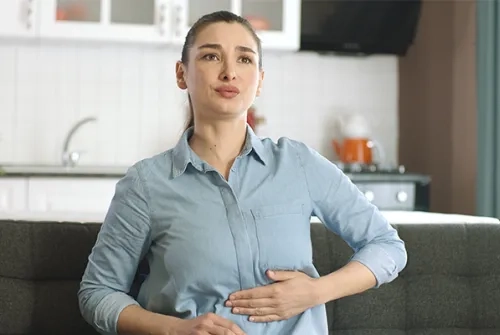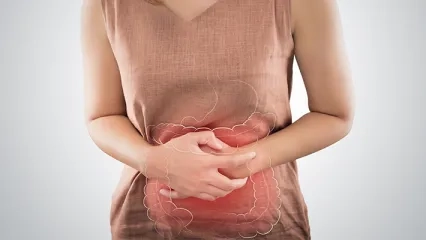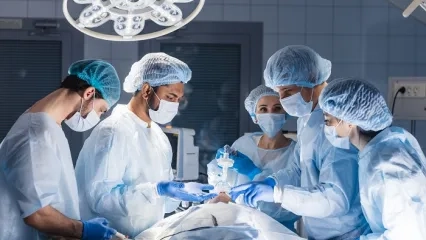Alo Yeditepe
Alo Yeditepe
What Are the Symptoms of Gallbladder Stones? How Is It Treated?
"Expert Warning: The Real Cause of the Pain You Thought Was Gastritis Could Be Gallbladder Stones"
General Surgery specialist Assoc. Prof. Dr. Kinyas Kartal, who reminds us that the pain of gastritis and gallbladder stones can sometimes be confused, said, "Patients may mistake their pain for stomach problems and use some stomach-relieving medications. In such cases, if the problem is in the gallbladder, delay can lead to more serious issues." Dr. Kartal also emphasized that delay can complicate both the surgery and the post-operative period, saying, "Don't dismiss stomach pain; the real problem could be your gallbladder stones."
Explaining that when there is a problem with the gallbladder, there can be difficulties in digesting fats, Assoc. Prof. Dr. Kinyas Kartal, from the Department of General Surgery, said that as a result, the most common symptom in gallbladder stones is abdominal pain. However, Dr. Kartal pointed out that patients often do not consider gallbladder stones as the cause of this symptom, which can also be attributed to various other diseases. He emphasized that delayed diagnosis can lead to delayed treatment, which can, in turn, lead to more serious health issues.
"Our patients often mistake their pain for a stomach problem."
Dr. Kinyas Kartal, a General Surgery specialist at Yeditepe University Kozyatağı Hospital, mentioned that gallbladder stones tend to be more common in the 40s age group compared to other age groups. He provided the following information: "Gallbladder stones are more frequently seen in women and individuals with fair skin. Additionally, they can be more prevalent in overweight patients compared to those who are underweight. The differential diagnosis of the disease is challenging because its location is close to the path of gastric nerves, leading to confusion with stomach-related pain. Patients, mistaking their pain for stomach issues, sometimes use stomach-relieving medications. In such cases, delayed diagnosis and treatment become inevitable."
"Individuals with high cholesterol are in the high-risk group."
Dr. Kartal also mentioned that genetic factors play a role in the formation of gallbladder stones and discussed risk factors, saying, "If you know that there are gallbladder stones in your family, it makes you a candidate for gallbladder stones. We more frequently observe gallbladder stones in overweight patients and in the age group of 40-50. Rapid weight gain or loss can also be a risk factor for gallbladder stone formation, as it can alter the composition of bile. Individuals with high cholesterol levels are also at risk for the development of gallbladder stones."
"Signs Indicating the Presence of Gallbladder Stones"
Dr. Kartal also noted that the symptoms of the disease often begin with nausea and abdominal pain, and he added the following about the symptoms:
"Shoulder and back pain can also accompany these symptoms. Pain in the middle of both shoulder blades is a specific symptom for gallbladder stones. Abdominal pain, shoulder pain, nausea, and associated vomiting are among the most important symptoms of gallbladder stones. If you experience these complaints, you should definitely consult a doctor and, if necessary, be placed on a surgical program after the required treatment."
"Is the Problem Coming from the Gallbladder or the Stomach?"
Dr. Kartal provided the following information on how gallbladder stone pain can be distinguished from other pains:
"While stomach, gastritis, and ulcer pain are mostly felt on an empty stomach, gallbladder stone pain occurs after eating and food intake, so it tends to occur when the stomach is full. Our patients often refrain from eating, thinking 'my stomach hurts.' When they don't eat, the gallbladder also relaxes, creating a paradox. Gastritis pain and gallbladder pain are the most commonly confused pains, but their treatments are completely different. Gastritis is treated with medications, while many gallbladder diseases require surgery. Therefore, if there is a significant delay in distinguishing between gastritis and gallbladder pain, surgery and the subsequent recovery period can be more challenging for our patients. For this reason, patients should not dismiss their issues as 'stomach pain.' Because it's important to remember that when gallbladder stones are not treated surgically, they can lead to inflammation of the gallbladder and bile ducts, and if a stone has fallen into the bile ducts, it can cause serious health problems such as jaundice and even pancreatitis."
"We Prefer Minimally Invasive Surgeries"
Dr. Kinyas Kartal, a General Surgery specialist at Yeditepe University Hospitals, emphasized the need for surgery in the treatment of gallbladder stone pain and provided the following information about the treatment:
"These stones can vary in size from as small as granules in gallbladder sludge to approximately 4-5 centimeters, which is about the size of an egg. The key factor here is not so much the size of the stone but whether it causes an obstruction or not. If the stone causes an obstruction that prevents the gallbladder from emptying, it can lead to inflamed gallbladder, and at this point, surgery is the treatment. There are two different techniques used in surgery, open and laparoscopic. Conventional open surgery, which has been used for a long time, involves removing the gallbladder. Nowadays, gallbladder surgeries performed using the laparoscopic technique are considered the gold standard treatment. We typically discharge our patients the day after surgery and allow them to return to their normal lives within a week. However, it's important to remember that early surgery in the early stages of gallbladder stones, before the problem progresses, is also crucial for the patient's comfortable postoperative recovery."
About
Faculty and Year of Graduation:
Başkent University Faculty of Medicine, 2006
”
See Also
- What is Gallbladder Surgery?
- Patched Solution for Umbilical Hernia
- Swallowable Gastric Balloon
- 3 Major Developments Shaping Treatment in Colon Cancer
- Can Weight Loss Despite Not Dieting Be a Sign of Cancer?
- He Came to Turkey to Get Rid of the Colostomy Bag
- Emotional Stress May Affect Risk of Recurrence in Breast Cancer
- Although Her Fears Prevented Her from Going to the Hospital, She Managed to Beat Breast Cancer at the Age of 70
- Breast Cancer Screening Applications Decreased by 10% Before the Pandemic
- Facts About Breast Cancer
- Liver Cancer (Tumor) and Treatment
- Gallbladder Stones
- What Is Appendicitis?
- Questions About Gastroenterology Surgery
- What are the Types of Obesity Surgeries?
- Questions About Obesity Surgery
- A New Era in Obesity Surgery
- Overweight
- Are Obesity Surgeries Risky?
Alo Yeditepe





